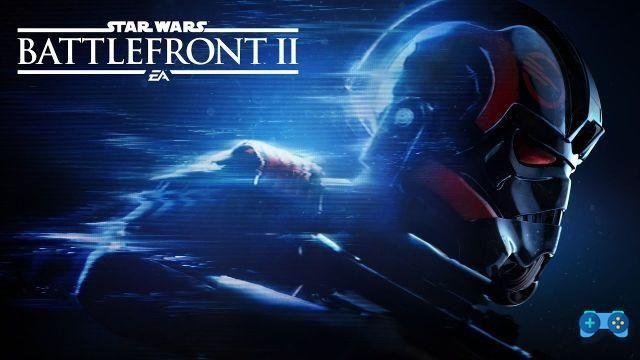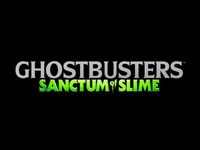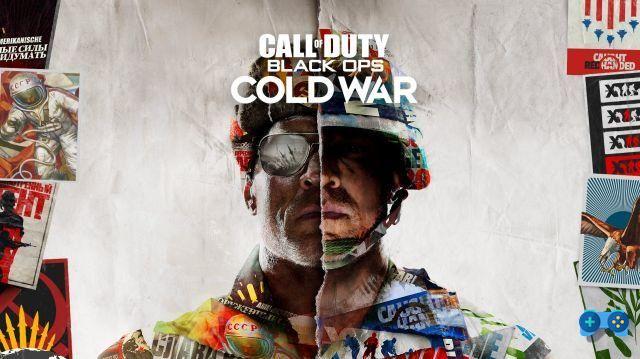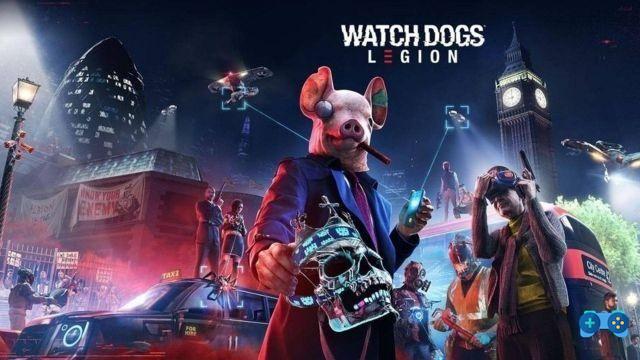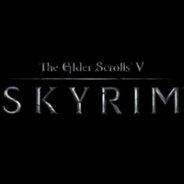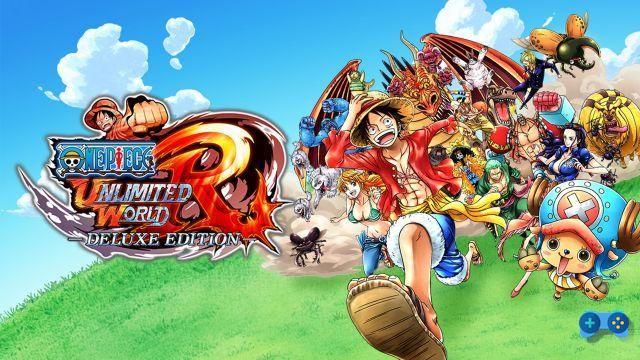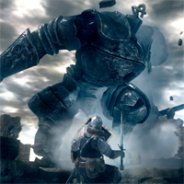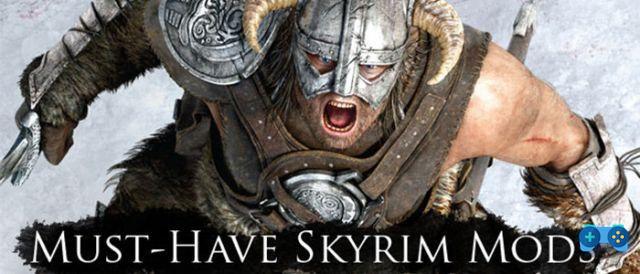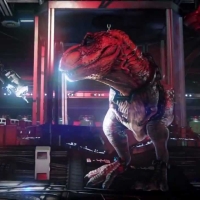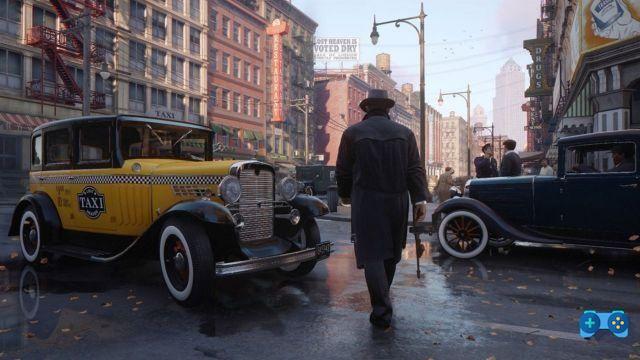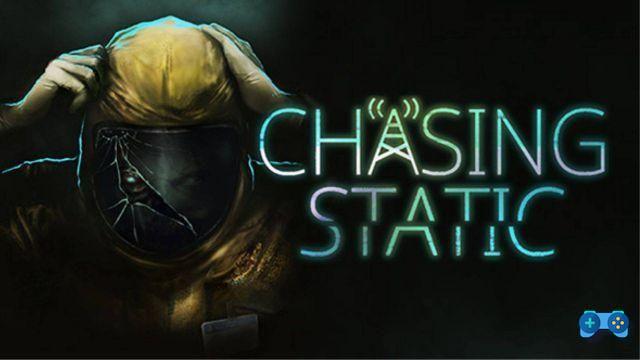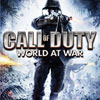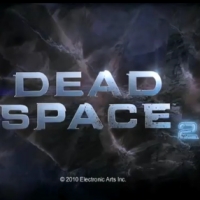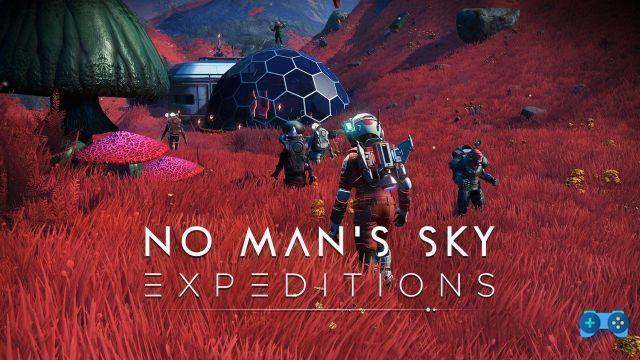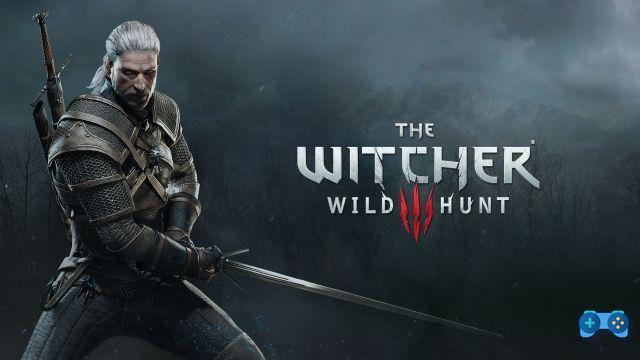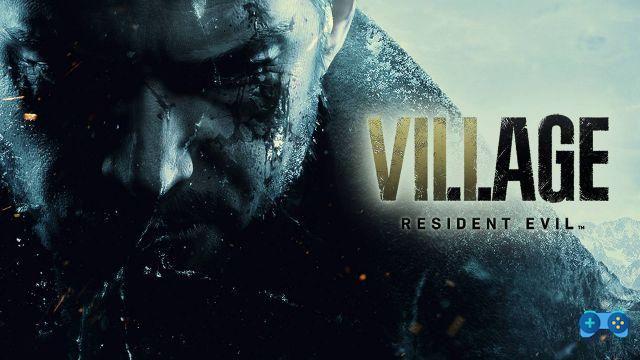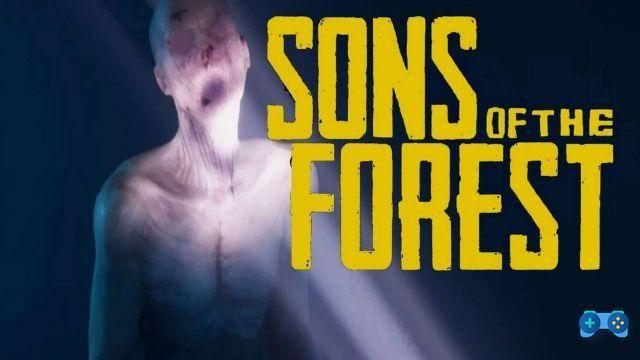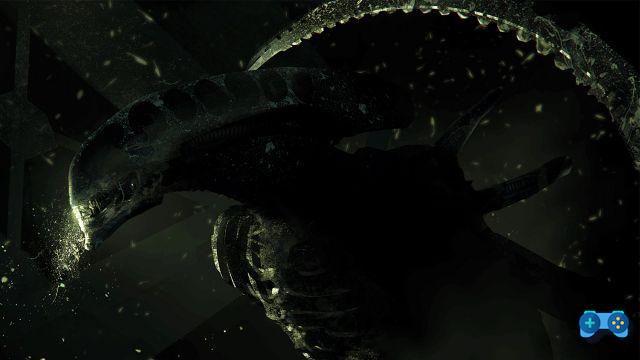
Alien: The Roleplaying Game is a fantastic sci-fi horror adventure that stands out from the movie
Almost forty-two years later, Alien di Ridley Scott, still represents today one of the best cinematographic works ofhorror / sci-fi. An incredible film that has inspired genres, directors, literary works and so on and so forth. The success was the result not only of the well-known director but of two extravagant but brilliant "characters": Hans Ruedi Giger e Carlo Rambaldi. Together, they were able to bring to life the most feared and deadly creature in the universe: The Xenomorph. A being, which in its adult form, manages to reach almost two meters in height, with a tapered head, acid in the veins and sinuous but deadly movements.
"In space, no one can hear you scream."
When the crew of the space freighter Boatswain is awakened from hypersleep by MOTHER to check the origin of a strange frequency from the unknown planet LV-426, he does not know what he is going through. On the surface it looks like a "routine" check or a false alarm. Once they land on the planet, Dallas, Kane and Lambert stumble upon something unusual: a crashed alien spaceship almost reduced to wreckage. There seem to be no life forms or traces of survivors. Things go downhill when Kane stumbles upon strange egg-like "objects". One of these pops open and a parasite spews out from inside, which fans will know by the name of facehugger. The situation escalates, Kane looks doomed and Dallas and Lambert rush to his rescue, taking him back to the spaceship.
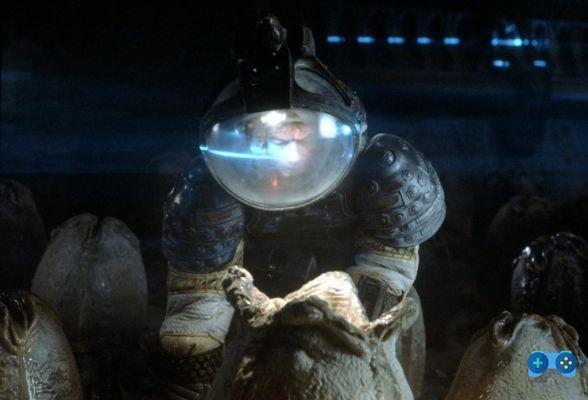
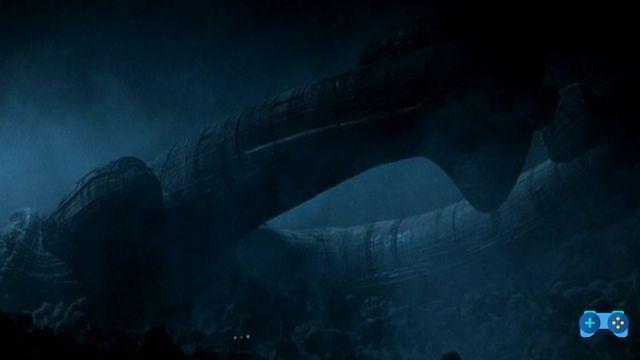
A perfect incipit, which sends the spectator's pulse to a thousand. This unknown creature represents only the beginning of the terror that the members of the Nostromo will face. The parasite seems impossible to remove surgically and any cut or tear, in addition to causing irreversible damage to Kane's face, could compromise the ship's structural integrity. In fact, the facehugger - like the Xenomorph - also has acid in its veins that is powerful enough to penetrate the hull. Any attempt seems futile, and soon the crew resigned.
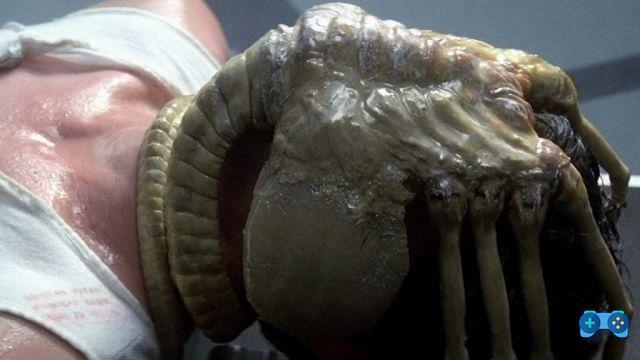
Incredibly, the parasite detaches itself from Kane's face and he awakens. He seems to remember nothing and above all he appears in excellent shape. What better way to celebrate the happy event than with a nice dinner? Ideal, before returning to hypersleep and traveling back to Earth. During the meal, however, Kane begins to cough violently until he experiences severe convulsions and internal bleeding. After that a monstrous alien creature escapes from his chest killing him instantly, and then flees away to the spaceship.
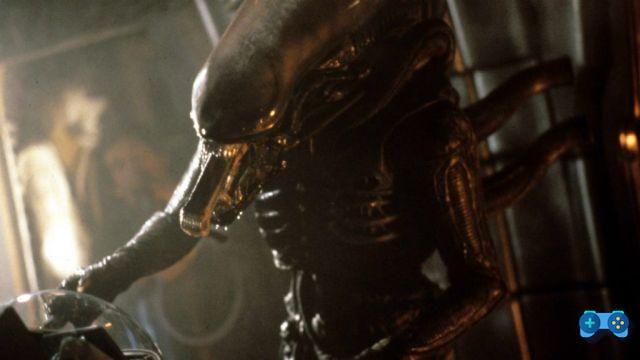
When the team realizes what it has on board: "A perfect organism, whose structural perfection is matched only by its hostility ... a survivor, not clouded by conscience, remorse, or illusions of morality", it is too late. They have neither the skills nor the resources to deal with it. Every ravine could be deadly, every air duct could contain the dreaded "monster" and a simple flamethrower is not enough to wipe out the threat. Only one woman (and what a woman) faces the alien with firmness and determination. His name is Ellen Ripley (played by Sigourney Weaver), who manages, even with a little luck and a spirit of survival, to shoot the repulsive enemy into space.
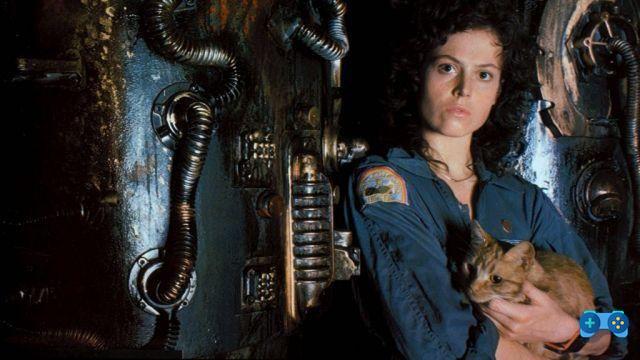
'Final report of the Nostromo spacecraft by the third officer. The other crew members Kane, Lambert, Parker, Brett, Ash and Commander Dallas are dead. Cargo and ship are destroyed. I should be at the border in six weeks. If I'm lucky, surveillance will get me to safety. Speak Ripley, the Nostromo's only survivor. Over and out."
From the cinema to the home table
The first chapter was then followed by three sequels, crossover with Predator and the most recent Prometheus and Alien Covenant. None of these, with the exception of the second chapter: Aliens: Final Showdown, has managed to match the grandeur and magnificence of Alien. It remains an extraordinary work of great cultural impact.
It is therefore impressive that the Swedish publisher Free League was able to create a tabletop RPG capable of evoking the same dark terror as Alien but sitting comfortably at the table in their kitchen.
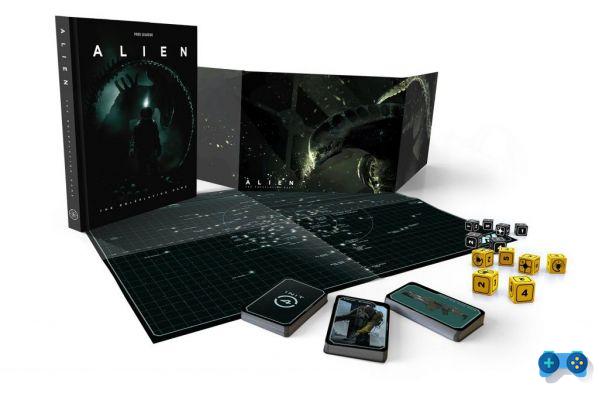
There are very few other RPGs that are equally inspired and capable of keeping the attention of every word spoken by the GM, every dice hitting the table, equipment and character abilities.. Whether you're tackling a one-shot scenario as a group of hapless space transporters or decide to build an entire campaign for a band of traveling explorers, the game - as the first 1979 film did - excels at keeping the tension in almost unbearable levels.
As things start to get more and more difficult, expect something terrible to happen. Sometimes this leads to a fanged monstrosity that tears open the bulkhead of the ship, others to have to deal with an ally struggling with a real nervous breakdown and that during a firefight, completely losing lucidity, rushes out of cover. Everything is damn dramatic and your every move could mean the difference between survival and death.
This loop, from escalating tension to deadly climax, sits at the core of Alien and is something the RPG adaptation has captured wonderfully.
It makes sense, then, that the ground rules have been kept nice and simple. Everything is based on the d6, a feature that can be found in many other Free League games. If you roll at least a six, you will succeed in what you are trying to do, whether it be hacking a terminal or slamming the door on a charging xenomorph.
Combat System
Fight is undoubtedly an option, but undoubtedly, the stealth is one of the elements that distinguish Alien: The Roleplaying Game. After all, there may be monsters lurking in the shadows, so you should do whatever it takes to avoid getting their attention. The GM will track the enemy's movements on a secret map, so inside any air duct or behind any closed door there could potentially be a nasty creature waiting to eat you, or worse.
Each monster has a distinctive move table, some of which are instantly deadly to players. This doesn't mean that every encounter with an alien will end in death, but you should make sure you have the equipment and weapons you need to deal with it. Of course, in a game like Alien something always goes wrong: the evacuation ship crashes or you are betrayed by a man from the company trying to make extra money. So don't expect your plan to always work. And often you will have to rely on the combat.
Combat is fast and deadly, even when not fighting monsters. Even if you are a tough and ready Marine, you will still be prone to panic and stress. Like the tabletop RPGs based on the Lovecraft Myths, in Alien you don't have to worry only about your physical health, but also about mental health. Stress measures how well the character is coping with the events unfolding around him and the more actions you take, the more your stress level will increase. Too much stress and the character may panic, which could potentially mean doing something stupid and most likely dangerous as well.
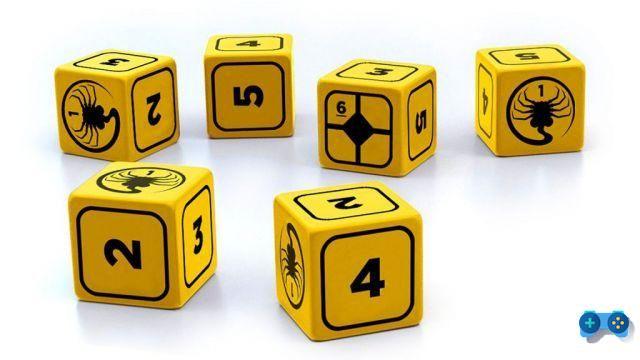
Beware of stress
As with other horror games, in Alien: The Roleplaying Game Most characters' stats are adjusted so that you can try something outside of their specific ability.
Dealing with death using only a d6 isn't the most comforting experience, so this is where you'll come across the most interesting mechanical twist in RPG: the stress nuts.
When a character attempts an action that requires a roll, the player also rolls a number of stress dice equal to your stress level. As with the normal dice pool, a stress die roll of 6 is also a success. However, a roll of 1 on a stress die requires a roll on the panic table to see what happens. Thus, the stress dice have two effects: one is to increase the chances of success and the other is to cause the character to panic.
Most of the time they only work as an extra chance of success - characters focus more as their adrenaline builds - but if they miss several shots at a critical moment the accumulated stress can end up biting. Maybe literally.
Depending on the panic roll and the current stress level, the character may start shaking uncontrollably or go crazy and immediately attack the closest person or creature. Of course, there are many other results on the panic table besides these two. We liked the panic mechanic because, while it may deprive the player (at least temporarily) of their agency, it creates interesting situations and forces the characters to face their fear in ways the player may not be willing to do.
Alien: The Roleplaying Game can be a pretty heavy RPG, but it turns out to be accessible even for those who are not fans of RPGs of the genre. If your character's agenda dictates a certain move, or if there is a state that affects the character, there is usually a rule that determines how the character should react. This does not mean that you do not have control over the character, but he panics, he will have to do it in the manner specified by the table.
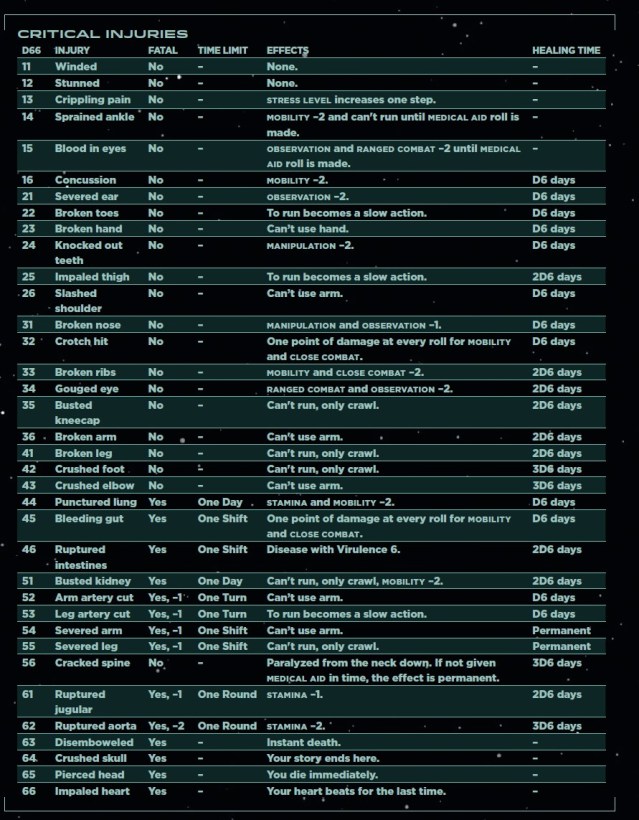
The core rulebook provides dice pool gameplay mechanics for almost every action in the alien world: skill rolls, armor and cover, running out of ammo and other consumables, spacecraft combat, explosions, fire, decompressing a spaceship and radiation.
Initiative and critical wounds are two game mechanics that don't use the dice pool system. In this game, the initiative order is handled with a simple draw of cards (normal playing cards can be used) and critical wounds are rolled onto a table (2d6; 11 to 66) whenever a character is about to reach zero health.
Campaign mode and cinematic mode
One of the strengths of Alien: The Roleplaying Game is that it can be played in two very different modes, each adapted to a specific type of experience.
With the campaign mode you'll get something that looks like a regular RPG, with multiple sessions and a storyline spread over weeks or months of play. It gives you the tools to explore the hellish landscapes of the future or fly a spaceship and try to make money in the vacuum of space. Most players will likely come across killer monsters, but they could easily go weeks without stumbling upon something scarier than a marine with a pulse rifle and poor trigger discipline.
The other modality, the cinematic mode, is what is advisable to reproduce if you want to live an experience closer to the Alien films themselves: something short, snappy and absolutely lethal. It's entirely designed to run out in a couple of hours, complete with predefined characters and a minimum of extra details for players or GMs to get busy with.
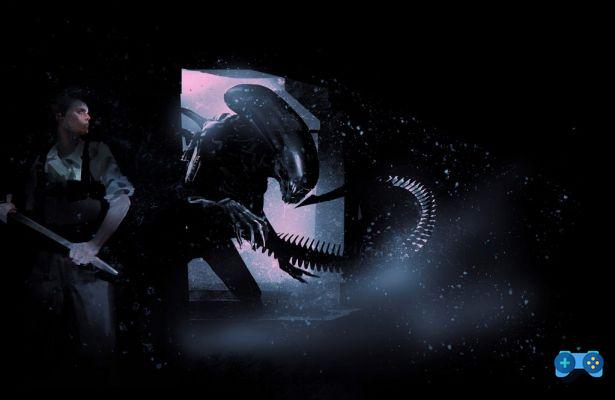
Most important, perhaps, is the fact that it abandons the standard tabletop RPG convention that most of the cast will survive the night. Characters are no longer heroes, they are prey.
Both modes bring their own strengths and weaknesses into play. When you run a campaign, you'll get the long-running narrative that many RPG groups have come to expect, the ability to explore the Alien universe, and much more room for customization.
However, this requires everyone to be a little more familiar with the fiddlier systems buried deep in the rulebook, especially things like ship-to-ship combat, long-distance travel, and the setting itself.
Also, the biggest problem with running a conventional campaign is that you probably won't be able to wedge a monster encounter into every single session and keep things exciting. Once the Xenomorph is gone, you're left with a solid sci-fi RPG, but one that's not particularly challenging if you haven't already invested heavily in the setting.
Cinematic mode, meanwhile, is a much less profound experience, but it works pretty well. In fact, it allows you to ignore all the rules, skip the character creation process and go straight to something that feels truly unique.
Final comment
Even if you don't like movies, you've never heard of a facehugger or seen a Xenomorph, Alien: The Roleplaying Game will entertain you. Just dim the lights, put some industrial music in the background and invite friends to experience a terrifying evening (or more).
The rulebook itself is beautifully illustrated and truly catapults you into the world of Alien. Each element is described quite well and there is very little repetition. Everything is arranged in an extremely logical and intelligent way. We would like more TTRPGs to follow suit. Our only complaint is the lack of images showing all creatures. There are many depictions of the Xenomorph, but few of neomorphs and creatures introduced in more recent films.
The purchase price of the starter pack is 80,98 euros and you can buy it on Amazon.com or directly on the Free League website.




